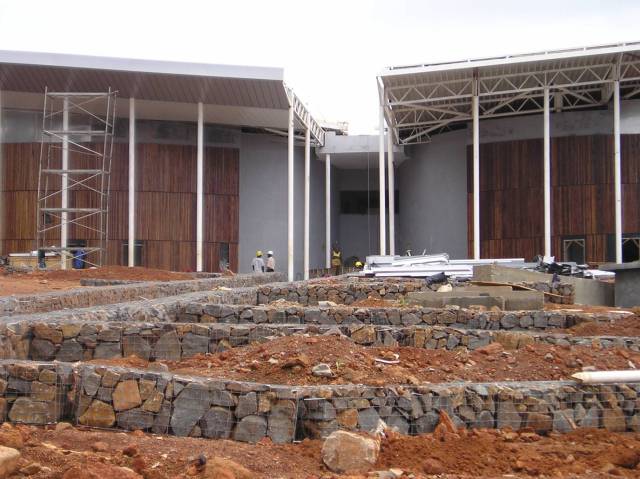U.S. Senator Al Franken has called on Secretary of Homeland Security Jeh Johnson to ensure access to counsel for asylum seekers held in family detention centers. Joined by 18 Senate colleagues, Sen. Franken raises serious concerns regarding reports that U.S. Immigration Customs and Enforcement (ICE) is interfering with the ability of asylum-seeking mothers and children to access legal representation. Recently, individual volunteer attorneys, who had travelled to the privately-owned prison in Dilley, Texas where approximately 2000 Central American refugee women and children are detained,were barred from entering to provide pro bono representation.
Access to counsel can be the difference between life and death for asylum seekers in the United States. Asylum seekers who have lawyers are more than three times as likely to be granted asylum as those who do not. Having an attorney is “the single most important factor” affecting the outcome of the case. Yet individuals in immigration detention face the biggest challenge in obtaining legal representation. The American Bar Association estimates that a whopping 84% of immigration detainees nationwide were unrepresented in their removal proceedings.
At the international level, The Advocates for Human Rights drew attention to the appalling lack of access to counsel for asylum seekers during the UN reviews for U.S. compliance with its obligations under the International Covenant on Civil and Political Rights, the Human Rights Council’s Universal Periodic Review, and the Convention Against Torture. Most recently, The Advocates raised the continuing failure of the U.S. to recognize asylum seekers from Central America’s northern triangle in its statement to the UN Human Rights Council during a September 28 interactive dialogue on the impact of the world drug problem on the enjoyment of human rights:
As an NGO that provides free legal services to asylum seekers in the United States, we would particularly like to draw attention to an issue that we see on a daily basis: the impact that violent transnational criminal gangs in Central America, fueled by profits from the trade in illegal drugs, have on the lives Central Americans, forcing thousands of women and children to flee and seek safety in the U.S.
Transnational gangs extort, threaten, and forcibly recruit people living in strategic drug trafficking corridors. States in the region are ill-equipped to deal with crimes by these gangs, leaving victims unprotected from serious harm, including torture, disappearance, sexual violence, and murder. And the violence continues to grow, as gangs seek to solidify their control over valuable drug trafficking routes.
For example, gang members threatened to kill one of our clients, who I’ll call “Teresa”, after her family could no longer afford to pay protection money for the family business. Armed gang members abducted her, threw her into a truck, and took her to the leader’s house, where he beat and raped her. Left with no choice but to flee, she sought asylum in the U.S.
Yet the U.S. violates the fundamental rights of asylum seekers like Teresa by failing to recognize victims of transnational criminal gangs as refugees, even when such gangs operate as quasi-state actors that routinely torture, rape, and kill those who resist support or recruitment.
Asylum seekers face other violations, including arbitrary detention and prosecution for illegal entry. Mothers and their children are detained in difficult conditions pending preliminary credible fear determinations in two privately-owned prisons where attorneys have been denied access to clients and even summarily barred from the facilities.
The Advocates for Human Rights calls upon:
-
the Human Rights Council to include this issue in the discussion about the impact of the world drug problem on human rights;
-
the United Nations member States to ensure that their national drug policies consider the impact on the human rights of affected individuals and their countries; and
-
the U.S. to end family immigration detention and expedited removal procedures and to treat all asylum seekers in accordance with international standards.
See The Advocates’ volunteer Dr. Bill Lohman deliver the oral statement to the Human Rights Council:
In July, The Advocates launched a bilingual National Asylum Help Line to connect families released from U.S. immigration detention centers like the one in Dilley with free legal services. Migrants are encouraged to call the Help Line at 612-746-4674 to receive basic legal screening, information about the legal process, and referrals to agencies in areas in which they live.
By Michele Garnett MacKenzie, The Advocates for Human Rights’ Director of Advocacy, and Deputy Director Jennifer Prestholdt.






You must be logged in to post a comment.